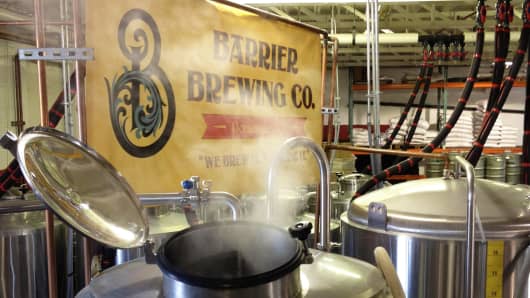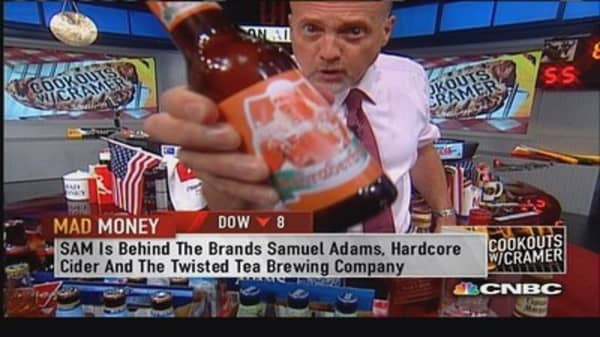Last Saturday, New York beer enthusiasts were offered free 4-ounce pours of 11 beers and a five-pour flight in the new tasting room of an up-and-coming microbrewer in Oceanside, a neighborhood on Long Island's south shore.
Tastings of fancy brews have become more commonplace as craft brewers act with all the deliberation and discrimination of Napa vintners. This tasting event was different, though. There was an air of relief and amazement at something that might never have been because of the havoc Superstorm Sandy wrought on Oceanside.
The tasting room was a longtime dream of Barrier Brewing co-owners Craig Frymark, 29, and Evan Klein, 33, and it came to fruition in a bittersweet way that echoes the mixed emotions of owners who experienced Sandy's devastation firsthand. Though they resurrected the business, the tasting space was provided when a next-door neighbor vacated his lease after Sandy.
"It would never have happened if it wasn't for the storm, so I guess it was a blessing in disguise," Klein said.
The tasting room marked Barrier's full recovery from Sandy, an almost yearlong process during which the microbrewery went from unexpected success to unimaginable loss—then back to rejoin the rising tide of the craft beer industry.
(Read more: Businesses that will clean up on the next Sandy)
Everything was going right for Frymark and Klein In the summer of 2012. After only two years in business, they were receiving accolades from the beer community and expanding operations. They moved from a 1,000-square-foot basement to a 5,000-square-foot customized facility and hired more staff. They tripled brewing capacity.
Four months later, Sandy blew in.
"The day we walked in and saw the damage, it was overwhelming," Frymark recalled. "We didn't know where to begin."
"A stench of low tide and gasoline," Klein said. "It just smelled horrible," Frymark added.




